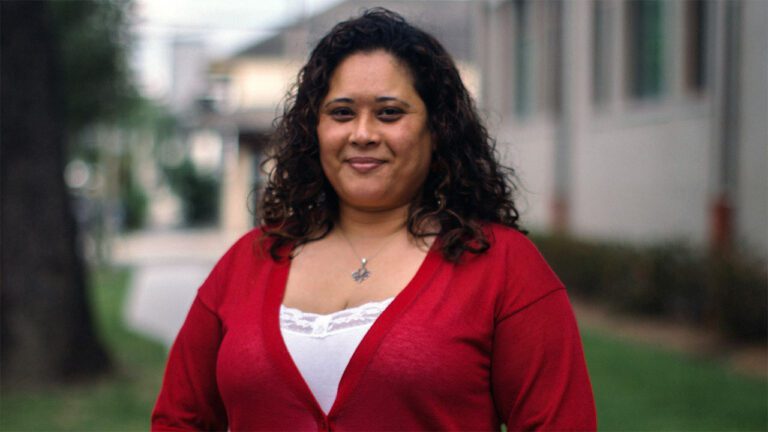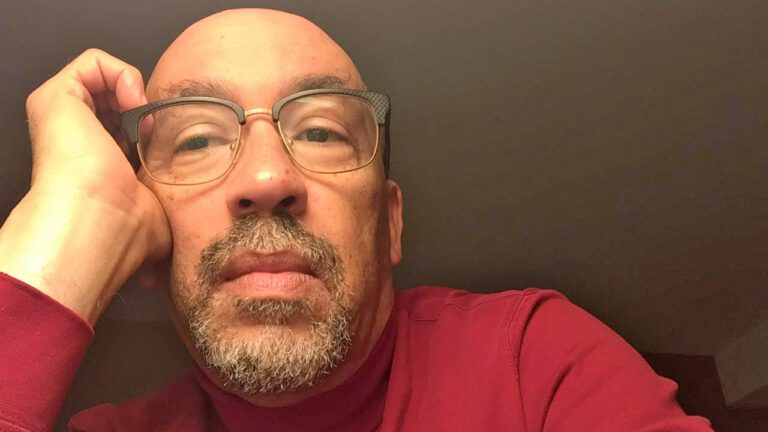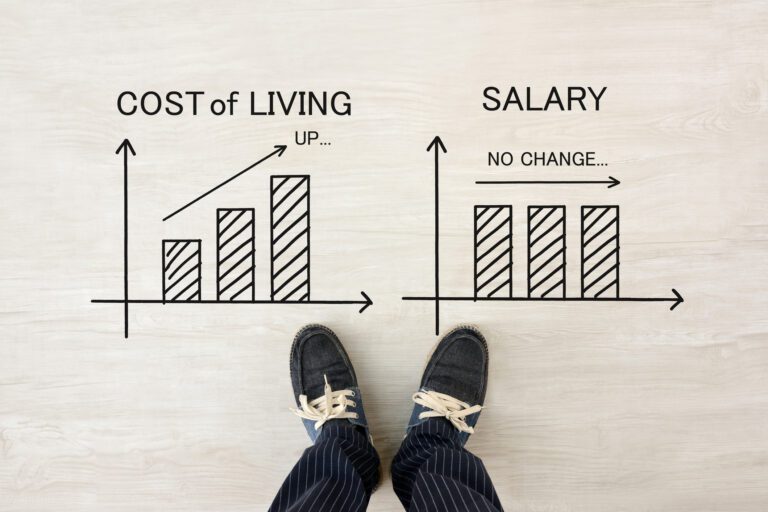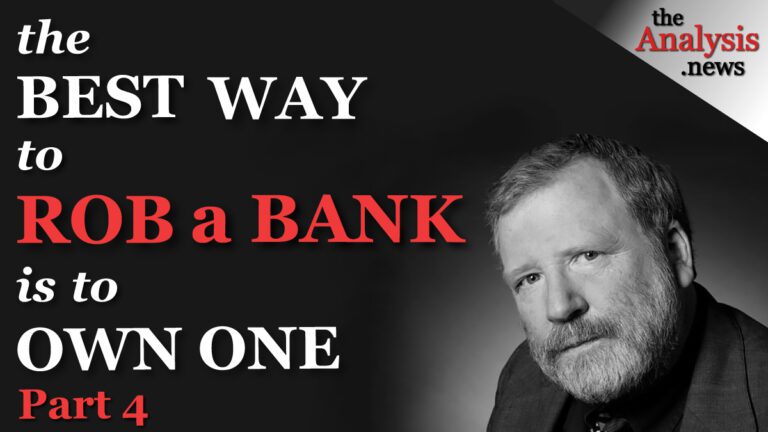Richard Kozul-Wright explains why these challenges need to be addressed at once in a transformative agenda. The COVID-19 crisis shows that funding can be made available; the problem is the lack of political will to confront the Wall Street consensus.
Transcript
LYNN FRIES: It’s Global Political Economy newsdocs. I’m Lynn Fries. A Global Green New Deal: Covid Capitalism and Just Transition was the topic of a webinar organized by the Transnational Institute. This newsdoc is a report on some of what Richard Kozul-Wright had to say at that webinar. Richard Kozul-Wright is UNCTAD’s Chief Economist and Director of UNCTAD’s Division of Globalization and Development Strategies. Richard Kozul-Wright is lead author of Financing A Global Green New Deal: UNCTAD’s 2019 Trade and Development Report and co-author of A New Multilateralism for Shared Prosperity: Geneva Principles for a Global Green New Deal. We go now to our featured clips.
RICHARD KOZUL-WRIGHT: I do think what the COVID-19 challenge does remind us of and speaks to the issue directly of ecology is how we deliver public goods and protect the public and global commons.
We don’t live in a world of global government. And I think, thankfully so, in my opinion. But you know the difficulty of providing global public goods in the absence of global government – and governments are responsible for public goods at the national level – is an old challenge that has haunted the multilateral system since its inception. How we think about that notion of representation at the international level still has not been addressed. All we can say is that the current institutions really do not show the kind of degree of representation that is necessary to deal with certainly the problems that most policy makers in the developing world face on a day-to-day basis.
Even before COVID hit, economic prospects across the world economy were deteriorating against this backdrop of interlinked and mutually reinforcing economic, social and environmental stresses and crises. Solving these crises needs to address the rules of this hyperglobalized world that has emerged over the last three or four decades. And the vested interests that have formulated those rules particularly around footloose finance. And effective solutions require that the public sector take the lead in finding solutions to these stresses with sufficient resources and adequate policy space to deal effectively with them. And this means, at least for us, it means a transformative agenda. You can’t solve these problems incrementally if you’re going to escape this so-called new normal that has emerged even more strongly since 2009.
And we think the idea of a Green New Deal can provide that kind of unifying narrative and a set of policy proposals to address not only the immediate problems of global recession but to mitigate the systemic stresses and to effect the required transformation. And when you look at the kind of packages that are bundled together under the rubric of a Green New Deal – and mainly in the North it has to be said but not only – they have certain common elements however. They reject austerity, first of all. And they look for kind of macroeconomic measures that are wage- led and job-rich. They involve always a massive investment push into climate mitigation and adaptation. But I think beyond that to notions of the care economy that are intimately linked with the need to address and build a healthier population and a healthier planet. They always involve progressive taxation – the need for progressive taxation systems. They always involve regulating finance. And a much bigger role for public banking as a central to a different type of financial system. And they involve some kind of strategic planning including a central role for industrial policy. All these are the kind of elements you find under the rubric, I think, of a Global Green New Deal.
Now, whilst most of these measures are rooted in the national State – there’s a strong State centered argument and therefore a national argument to these Green New Deals – I think they all also point beyond the national level. And that’s particularly true, of course, when it comes to developing countries. And pulling up the people of the South and cooling down the planet, I think, shifts the Green New Deal narrative to a global level. And in the process calls on the multilateral system to provide a robust framework for policy coordination, resource mobilization and regulatory oversight.
The work that we’ve tried to do in UNCTAD in the Trade and Development Report in particular has been to show why the economic stresses that have characterized this world of hyperglobalization – rising inequality, insecurity, indebtedness – are a product of the rules of hyperglobalization. And they’re very much reinforcing of each other. What we’ve also tried to do is to highlight a big paradox around those rules. And I think an opportunity for progressives everywhere which is despite being an avowedly pro-business – which the rules of neoliberalism and hyperglobalization certainly are – they have failed to boost productive investment. And that’s both true of the private sector and it’s true, particularly of course, of the public sector. So the emphasis on the need for a strong role for investment is central to our understanding of the opportunities around the Global Green New Deal.
Now the question is I guess, how has COVID impacted on this discussion? I think and obviously it has forced governments in the advanced economies to tear up the neoliberal rule book, first of all. When Tory chancellors suddenly discover their inner Keynesian self and Steven Mnuchin becomes a kind of implicit advocate of basic income, you’ve changed your understanding of the kinds of policies that you need to pursue to address this problem. And beyond that, I think, they’ve thrown a wedge between the idea of what is needed for a healthy population and a healthy planet. And we know from COVID that these two things are closely related.
And I think the big question now is how are we going to reconnect a healthy people, a healthy planet and a healthy economy. And in a certain sense, the global financial crisis was a dry run for this, for the neoliberal tradition supporting footloose capital. And ensuring that it could make profits whenever, wherever and however it wanted was essentially the basis for the policy initiatives that came out of the 2009 crisis. Of course, with a little bit of help from the gargantuan expansion of central bank asset sheets. And with a huge piling up of debt: public, private, developed and developing countries. Now, I think COVID-19 has dramatically exposed the limits of that kind of agenda and the fragility of the runaway hyperglobalized world we have been subject to. And it has provided a dramatic reminder, I think, that the health of people and the planet rests on this provision of public goods and the protection of the global commons. And the Global Green New Deal, I think, offers an alternative way of reconnecting people, the economy and the planet around this idea of a massive investment push led by the public sector.
Now, the estimates of what is involved in terms of financing vary tremendously. But everyone acknowledges that it requires moving from billions of dollars a year to trillions of dollars a year, to borrow a phrase from the World Bank. We think it’s in the order of 2-3% of global GDP annually that is required over the next decade with a significant amount of that obviously going to the developing world. And of course, the first reaction you get to these kinds of numbers is – can we afford this? Is the financing available? And again, the COVID-19 crisis to some extent helps in this regard. Because you know, the response to the Keynesians after 2009 was that we don’t have the kind of magic money trees that you need to be able to fund an expansionary response. What we see now is not simply magic money trees but the whole emergence of magic money forests that have somehow magically concocted trillions of dollars to deal with the consequences and offset the problems that have emerged from this crisis.
So, the issue of financial resources at least to us seems to be somewhat of a red herring. And when you look at the mechanisms of credit creation – the opportunities for taxation, the shifting of government programs from what is unproductive to what could be potentially productive – the resources are undoubtedly out there. And people like Naomi Klein in This Changes Everything have gone through a particular combination of taxes and subsidies that could be shifted into a Green New Deal agenda [1].Bob Pollin from the University of Massachusetts has done the same [2]. Bob has a bigger role for the credit system as do we in UNCTAD in defining the potential resources to fund this kind of large scale investment drive. And the 2019 Trade and DevelopmentReport tried to set out the kinds of resources that we think need to be rechanneled into a Global Green New Deal that are available to meet the investments not simply in climate mitigation and adaptation but in the provision of public goods more generally [3]. And we tried to show in our modeling of that exercise, why that kind of agenda is not only good in terms of increasing demand, of providing new jobs, of increasing wages but also it does open the opportunities to reduce carbon emissions to ensure that the health of the planet is deliverable within a reasonable time frame. It’s not a blueprint in the 2019 Trade and Development Report. It’s a reminder of the economic linkages that need to be utilized to ensure that this kind of policy is credible from a kind of economic point of view.
That said the Wall Street consensus hasn’t gone away. And it hasn’t gone away, in particular, in the international monetary system and indeed in the wider Bretton Woods multilateral system. And that’s a problem particularly for developing countries where the resource constraint is much more binding still than it is in the advanced economies. And sadly, compared with what they were meant to do, the Bretton Woods institutions – which were to control footloose capital, that’s what they were set up to do – they have over the last 30 years become handmaidens essentially of a very speculative and predatory form of capital that works against the kind of agenda that I’ve tried to outline. So that’s an obvious problem for people like ourselves. Because we don’t think you can simply trash that system overnight. You have to find ways of reforming that system in ways that can deliver on the kind of agenda that we’re talking about. Although that reform we think will also involve new institutions that can deliver more investment, more stability, more fairness and a healthier planet including of course for the developing world.
And we’ve tried to outline a set of principles to delivering shared and sustainable prosperity. Work that we’ve done with Kevin Gallagher and his team at Boston University; what we call the Geneva Principles for a Global Green New Deal that could provide this alternative [4]. And we’ve tried to outline reforms of the international financial system that we think will be necessary. The first one, of course, is the need for developing countries to have sufficient policy space to be able to enact the kinds of policies that we see as part of a Global Green New Deal. That means revising free trade agreements; it means revising bilateral investment treaties because these have very significantly cut into the policy space of developing countries. It means revisiting the need for capital controls as a necessary part of the toolkit of developing countries. The IMF has been ambiguous on that although it’s moved in that direction in recent years. We need to clamp down on corporate tax evasion and illicit financial flows going beyond the OECD BEPS initiative towards a common unitary taxation system with a global minimum tax rate. I think we need to talk about a global competition authority that can deal with the restrictive business practices of very large corporations. That’s an idea we’ve thrown out in UNCTAD in the past. We need a Debt Jubilee. I think Jayati to Ghosh talked about this in her presentation a couple of weeks ago. That’s a longstanding UNCTAD demand. The need for a proper international system to deal with sovereign debt restructuring goes back to the 1980s. We’ve long argued that that is a missing part of the Bretton Woods jigsaw. I think we need a properly funded global climate bank. Although the IMF and the World Bank have a role, I don’t think they should be given sole responsibility for that. Funding that kind of bank is an important issue. Weaning it from the dependence on credit rating agencies as a source of their risk management is critical. And we’ve also talked about, as I said before, the need for a green Marshall Plan that will deal properly with issues of technology transfer and adaptation funds for developing countries with different funding mechanisms using SDRs [IMF Special Drawing Rights] possibly ODA [Official Development Assistance] in a different kind of way. So that’s the kind of architectural reforms that we want to see.
A New Deal, at least to me, implies an avowedly political project. I think that was true of the original New Deal. It was responding to the anxieties of the times in the United States with a transformative agenda. That’s what the New Deal was all about. It acknowledged that there were vested interests that had to be confronted and it embraced popular voices in a way that had not been true of American politics, certainly, before that. And it took policy details very seriously. And it’s those combinations, I think, that make the idea of a New Deal and in this case a Global Green New Deal a relevant framing of the agenda that we’re talking about.
LYNN FRIES: We have to leave it there. That was Richard Kozul-Wright participating in a webinar on the Global Green New Deal. Richard Kozul-Wright is UNCTAD’s Chief Economist and Director of UNCTAD’s Division of Globalization and Development Strategies. Many thanks to the Transnational Institute as organizer of the webinar and to all the webinar co-sponsors and participants. And from Geneva Switzerland, thank you for joining us for this episode of Global Political Economy or GPEnewsdocs.
Footnotes:
1. This Changes Everything. Book by Naomi Klein.
2. Greening the Global Economy. Book by Robert Pollin. https://www.peri.umass.edu/publication/item/771-greening-the-global-economy
The Climate Crisis and the Global Green New Deal: The Political Economy of Saving the Planet. Forthcoming book by Noam Chomsky and Robert Pollin.
3. UNCTAD’s 2019 Trade and Development Report: Financing a Global Green New Deal. Annual report by UNCTAD Division of Globalization & Development Strategies.
4. A New Multilateralism for Shared Prosperity: Geneva Principles for a Green New Deal. Report by Kevin P. Gallagher and Richard Kozul-Wright of Boston University and UNCTAD respectively.
Richard Kozul-Wright is UNCTAD’s Director of the Division of Globalization and Development Strategies and lead author of its flagship report, The Trade and Development Report. He has authored the Resistible Rise of Market Fundamentalism (with Paul Rayment) and co-edited, Transforming Economies: Making Industrial Policy Work for Growth, Jobs and Development, with the International Labour Organization (ILO) among numerous other works.





